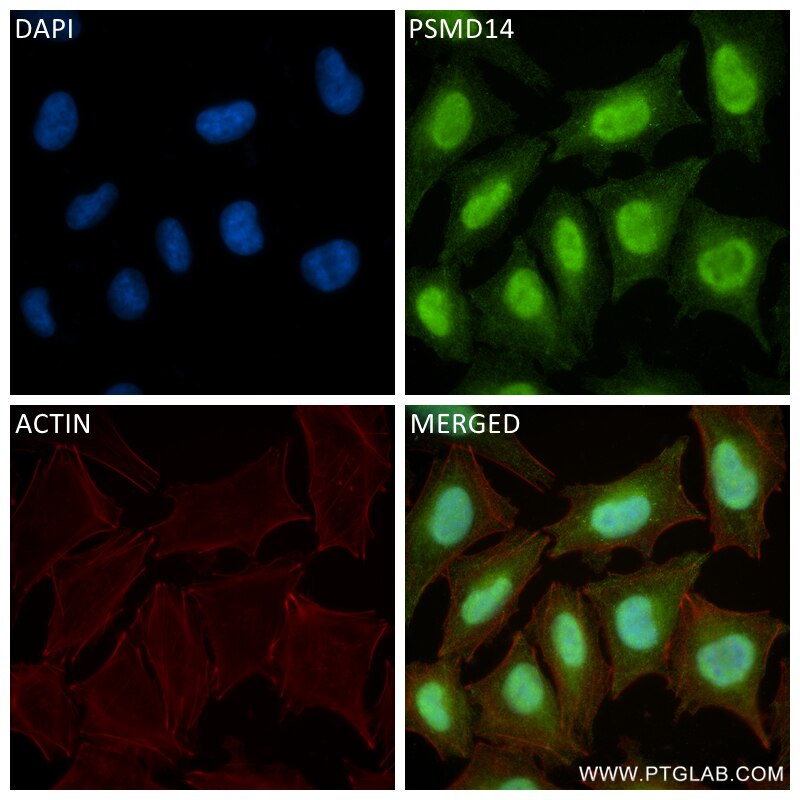Validation Data Gallery
Tested Applications
| Positive IF/ICC detected in | A375 cells |
Recommended dilution
| Application | Dilution |
|---|---|
| Immunofluorescence (IF)/ICC | IF/ICC : 1:125-1:500 |
| It is recommended that this reagent should be titrated in each testing system to obtain optimal results. | |
| Sample-dependent, Check data in validation data gallery. | |
Product Information
84767-4-RR targets PSMD14/POH1 in IF/ICC, ELISA applications and shows reactivity with human samples.
| Tested Reactivity | human |
| Host / Isotype | Rabbit / IgG |
| Class | Recombinant |
| Type | Antibody |
| Immunogen | PSMD14/POH1 fusion protein Ag2694 相同性解析による交差性が予測される生物種 |
| Full Name | proteasome (prosome, macropain) 26S subunit, non-ATPase, 14 |
| Calculated molecular weight | 35 kDa |
| GenBank accession number | BC009524 |
| Gene Symbol | PSMD14 |
| Gene ID (NCBI) | 10213 |
| Conjugate | Unconjugated |
| Form | Liquid |
| Purification Method | Protein A purfication |
| UNIPROT ID | O00487 |
| Storage Buffer | PBS with 0.02% sodium azide and 50% glycerol , pH 7.3 |
| Storage Conditions | Store at -20°C. Stable for one year after shipment. Aliquoting is unnecessary for -20oC storage. |
Background Information
The PSMD14 (POH1, also known as Rpn11/MPR1/S13/CepP1) protein is a metalloprotease component of the 26S proteasome that specifically cleaves 'Lys-63'-linked polyubiquitin chains. The 26S proteasome is involved in the ATP-dependent degradation of ubiquitinated proteins. PSMD14 is highly expressed in the heart and skeletal muscle. In carcinoma cell lines. down-regulation of PSMD14 by siRNA transfection considerably impacted cell viability, causing cell arrest in the G0-G1 phase, ultimately leading to senescence.
Protocols
| Product Specific Protocols | |
|---|---|
| IF protocol for PSMD14/POH1 antibody 84767-4-RR | Download protocol |
| Standard Protocols | |
|---|---|
| Click here to view our Standard Protocols |
